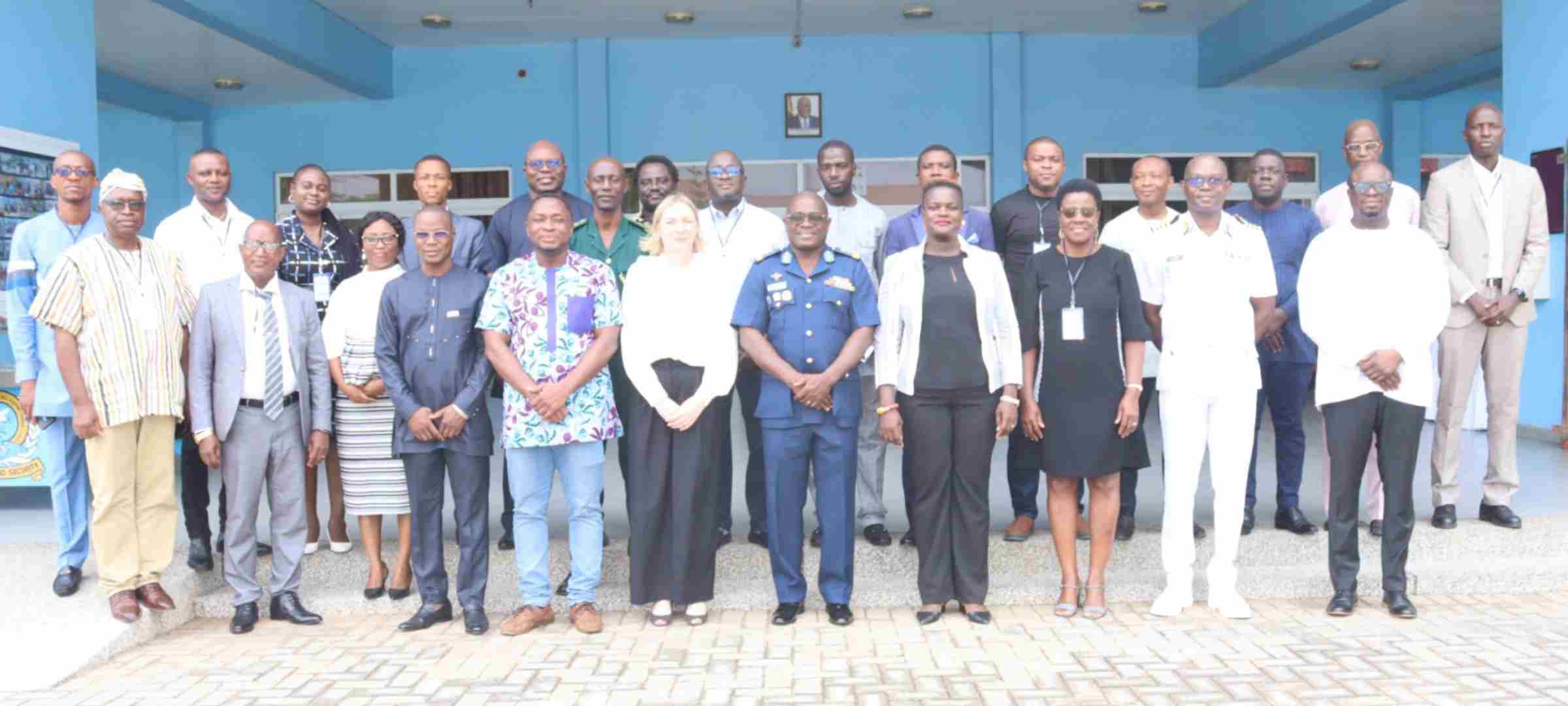Under Phase III of the Danish Maritime Security Programme (DMSP III), the Kofi Annan International Peacekeeping Training Centre (KAIPTC) has held a two-day seminar for the validation of researches conducted by the Centre in 2022, to empower military and civilian maritime law enforcement agencies to enhance their capabilities, improve coordination, and protect vulnerable maritime domains from crimes.
On Tuesday 27 June 2023, the Deputy Commandant of the West African operational level Training Centre of Excellence (TCE) – Air Commodore (A/Cdre) George Arko-Dadzie, who was the Guest of Honour at the Seminar said maritime security research inspires international cooperation and collaboration.

A/Cdre Arko-Dadzie said considering the scarcity of knowledge on maritime security and crimes in the region, Denmark through its cooperation with KAIPTC found it important to focus on researches in the area on various themes across the borders of coastal states in the region.
He said maritime insecurity in the Gulf of Guinea (GoG) region, especially piracy and armed robbery at sea, became a global concern when the UN Security Council determined it as a threat to international peace and security in its Resolutions 2018 and 2039.
He continued that, to suppress these crimes at sea, the resolutions, amongst other issues, recommended the criminalization of these acts in national legislations, the development of a strategy to guide regional response to these threats, and also encouraged international cooperation in the area.

“It is our belief that to successfully suppress maritime crimes in the region, studies are crucial to fully understanding and assessing the patterns, trends and root causes of maritime threats, which in turn would inform the development of effective strategies to prevent and combat these illicit activities at the national and regional levels”, the Deputy Commandant said.
He said the initiatives of Denmark and KAIPTC have focused on enhancing the capacities of regional and national institutions along the entire criminal justice chain – that is, from the detection of crimes at sea to the detention of convicted maritime criminals.

Furthermore, he said through research initiatives, knowledge sharing, and joint exercises, countries can develop common frameworks, share best practices, and build capacity to respond effectively to maritime security threats, and that the validation of the studies conducted by the KAIPTC over the next two days is very crucial to determining their originality and relevance to addressing the many maritime challenges confronting the GoG.
The research seminar will feature 5 research outputs from empirical research conducted in 6 countries: Senegal, Nigeria, Sierra Leone, Togo, Sao Tome and Principe and Liberia in 2022, which looked at the multiple roles of women in the blue economy, as well as the impact of maritime crimes on the livelihoods of women.

It also sought to assess Nigeria’s experiences in maritime governance, interrogated the media as a tool for effective maritime security information dissemination and tried to understand the domestic and external sources of maritime insecurity in the GoG.
Present at the opening ceremony was His Excellency Vibeke Sandholm Pedersen – Deputy Head of Mission in Ghana, Senior faculty members and staff of the KAIPTC, and maritime security experts and researchers.
